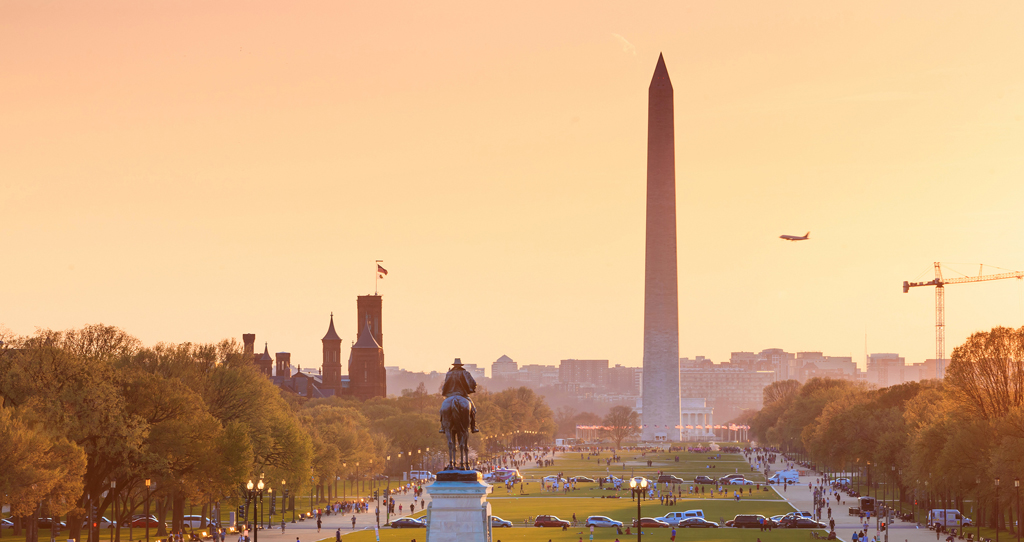He writes:
The first week of October saw all four UK farming union presidents attend the 38th biennial North American and European Union Agricultural Conference hosted this year by the American Farm Bureau in Washington DC.
I had the opportunity to accompany them and to attend the meetings and conversations we arranged alongside the main event. More than 20 countries took part along with reps from North American supply chain, US Congress and USDA.
By any measure it was an 'interesting' week in the States – the appalling mass shooting in Las Vegas; President Trump dismissing as 'fake news' Secretary Tillerson's alleged remark that the President was a 'moron'; and the President's efforts to frame his own reality by blaming others following his administration's slow response to repair the damage caused by Hurricane Maria to USA's 50th state, Puerto Rico.
The condemnation of US gun laws was widespread across the chat shows earlier this week, but I fear the description here of the gunman as a "lone wolf" captures a prevailing view on the 'Hill', that this is somehow still an isolated incident, the action of a "deranged madman" (Donald Trump again), not a systemic problem this society should solve.
But that was outside the Conference bubble, what were the highlights of four days in Washington
Farm labour shortages, moves to counter pubic suspicion over the technology needed to feed growing populations, tackling volatility in markets and climate change, securing fair trade agreements and championing 'real' farming to the public consumer were common themes to all attending the Conference.
It was the USA American Farm Bureau President 'Zippy' Duval, who first raised labour access saying: "US citizens no longer wish or want to work on US farms.”
Meetings we held later with Peter Orwick of the American Sheep Industry Association echoed the same point. Shepherds that formerly came from Mexico and Chile are no longer available - US immigration rules on maximum rates for low skill labour mean alternative sources are difficult to find. For the sheep sector this is a crucial sustainability issue adding to worryingly high levels of predation from cougar and wolves on the Federal-owned rangelands many graze. Re-wilders beware!
Trade agreements were a hot button for many around the conference. Donald Trump's promise of smaller government and deregulation has won him strong support amongst the US farm lobby. However, his abrupt withdrawal from the Trans Pacific Partnership trade deal and fundamental questioning of the long established NAFTA agreement with Canada and Mexico has thrown the farm lobby into turmoil, not unlike our own Brexit discussions. Farmers across the Continent want and need trade flows to continue, even adopting our own 'free and frictionless' terminology as driving theme.
Whether the populist 'trade on our terms' or pro-trade Republican wing gains ascendency, what was clear from that the feeling in room was that the USA believes it holds the trade cards - the market pull to command favourable deals and the technical skills to impose the trade outcomes they believe correct. Acting Under Secretary of State for Trade at USDA, Jason Hafemeister, was frank; the US had "given up" on any trade deal with the European Union, while China was a acting a truculent teenager. How this leaves a putative UK/USA trade deal remains to be seen, but our 'special relationship' is unlikely to provide succour, unless the US believes a UK deal would bring the EU to the table.
A major highlight of this week was an invitation for the four UK presidents to lunch with the UK Ambassador Sir Tim Darrock and recently appointed US Secretary of State for Agriculture, Sonny Perdue. During the conference we heard the praise and expectation heaped on Perdue as only the fourth (of 31) Secretaries who had actual farming experience. His reputation for shrinking government agencies was proven in Georgia, as Zippy Duval explained "I want our Secretary to little them back".
In the flesh he proved engaging company, a farmer, qualified veterinarian and two-time Governor of Georgia. He listened intently as the presidents explained what Brexit means for British farmers, the importance of devolution, British consumers' expectations for high animal welfare and environmental standards and the importance of retaining consumer confidence.
We concluded with a request for his direct intervention to speed regulatory approval for access for British lamb to the US market, making the point that this would build trust on future trading relations between our countries. However even with Secretary Perdue on our side, I suspect it will still be years not months before UK lamb will be on US tables.
An uplifting presentation drew the conference to a conclusion and drew comparison in my mind to our own Backing British Farming campaign. A grouping of over 100 farming organisations, the Farmers and Ranchers Alliance (nothing small in the States!) has launched a fascinating and informative Food Dialogues web resource, with some great YouTube videos, try viewing "Farm On", below, as an example…
